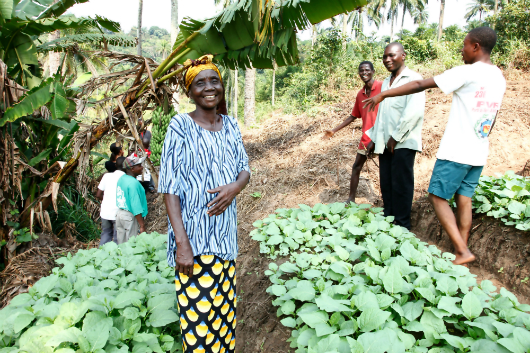Life in the World’s Poorest Country

Imagine being lulled to sleep by the constant sound of bullets ricocheting off trees in the forests beyond your home. For many living in the Democratic Republic of the Congo (DRC), this horror story is reality. Located in the heart of Africa, the DRC has been named the world’s poorest country, but its massive amount of available resources has it set up to eventually become one of the wealthiest.
The major issue that stands between this nation and a successful future is the rampant instability of government and daily life. Existing in a much more antiquated state than that of our own, 83 percent of all Congolese citizens live in rural villages and lack access to clean water and steady supplies of food. This means that around 125 out of every 1,000 babies die within three weeks of birth due to malnutrition. This instability has allowed the region to become a breeding ground for war. Roughly 5.4 million people have been killed during the war in the Congo, a death rate second only to that of the Second World War, leaving millions of orphans as a result of death by fighting and the spread of the AIDS virus. Of these millions of children, many are left starving with no certain way of getting access to food every day, leaving malnutrition as another leading cause of death in the region. The only sense of stability these children have known is the constant of war. Many are drawn to large militant groups because they provide a family-like structure and are a constant source of food and power. However, as the world’s leading powers have begun to catch wind of the atrocities being carried out in the Congo, it looks like all of this is about to change.
The heart of the Congo is home to the equatorial rainforest, making it rich in many natural resources of which companies pay millions of dollars per year to extract. The main issue that has risen during this process stems from companies attempting to take these resources free of charge, giving rise to more civil wars in the area. However, as more NGO’s begin to put boots on the ground in an attempt to bring this to a halt, many rural communities are starting to see a future in which they can succeed. The key to changing a life is giving someone a way to change their own. By teaching local citizens how to harvest resources and develop businesses to sell said resources, many communities have begun to rise from the ashes of war. Many organizations are practicing micro-lending in an attempt to create business and a sense of worth within communities. The Congo has the possibility to become a great nation where people are happy and well-fed, the government is stable and life is like a tropical vacation in a rainforest.
Although there is a long road ahead, every reaction has a catalyst and by bringing communities up one by one, we can create a difference beyond our best hopes.
– Sumita Tellakat
Sources: African Volunteer, The Atlantic, Our Africa
Photo: Flickr
